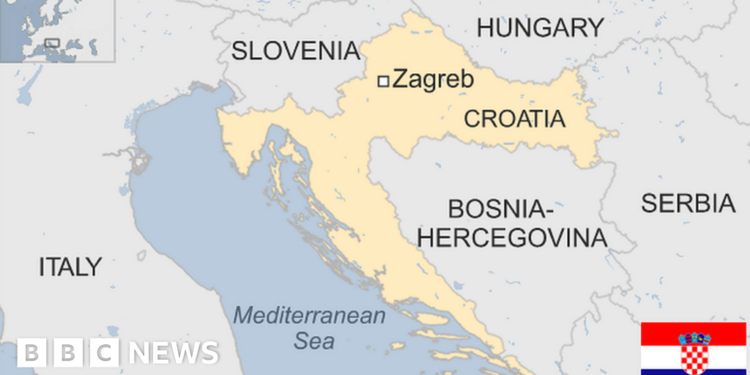1980 – Tito dies. The slow disintegration of Yugoslavia begins as individual republics assert their desire for independence.
1989 – Collapse of communism in eastern Europe leads to rise in support for parties with a nationalist programme.
1990 – First free elections in Croatia for more than 50 years. The communists lose to the conservative, nationalist HDZ led by Franjo Tudjman.
1991 – Croatia declares its independence. Croatian Serbs in the east of the country expel Croats with the aid of the Yugoslav army. By the end of the year, nearly one-third of Croatian territory is under Serb control.
1992 – The UN sets up four protected areas in Croatia, with 14,000 UN troops keeping Croats and Serbs apart.
Croatia also becomes involved in the war in Bosnia-Herzegovina (1992-5) supporting the Bosnian Croats against the Bosnian Serbs, then against the Bosniaks (Muslims). Franjo Tudjman is elected president of Croatia.
1995 – Croat forces retake three of the four areas created by the UN. Croatian Serbs flee to Bosnia and Serbia. Tudjman is one of the signatories of the Dayton peace accords ending the war in Bosnia-Herzegovina.
1996 – Croatia restores diplomatic relations with Yugoslavia. Croatia joins Council of Europe.
1997 – Tudjman re-elected as president. The EU decides not to invite Croatia to start membership talks, criticising the Tudjman regime’s authoritarian tendencies.
1998 – Croatia resumes control over the fourth UN area, Eastern Slavonia.
1999 – Franjo Tudjman dies.
2001 – The Hague tribunal indicts former Yugoslav President Slobodan Milosevic for war crimes and crimes against humanity in the war in Croatia in the early 1990s.
2003 – Gen Mirko Norac, seen by many Croats as a war hero, sentenced to 12 years for killing of several dozen Serb civilians in 1991.
2004 – Wartime Croatian Serb leader Milan Babic jailed for by Hague tribunal for his part in war crimes against non-Serbs in self-proclaimed Krajina Serb republic where he was leader in the early 1990s.
2009 – Croatia joins Nato.
2010 – Visit of President Josipovic to Belgrade signals thawing of relations with Serbia.
2011 – Two senior Croatian generals, Ante Gotovina and Mladen Markac, are convicted for war crimes against Serbs in 1995 by the UN War Crimes Tribunal in the Hague.
2012 – Convictions of Generals Ante Gotovina and Mladen Markac for war crimes are overturned by an appeals court in the Hague.
2013 – Croatia takes its place as the 28th member of the EU.
2015 – Moderate conservative Kolinda Grabar-Kiratovic is elected Croatia’s first female president.
2022 – EU interior ministers accept Croatia into the 26-nation, border-free Schengen zone, but reject Romania and Bulgaria amid concerns that both are soft on illegal migration.
2023 – Croatia joins the EU’s border-free Schengen zone and ditches its own currency, the kuna, for the euro.
Source link : https://www.bbc.co.uk/news/world-europe-17212572
Author :
Publish date : 2024-06-03 07:00:00
Copyright for syndicated content belongs to the linked Source.


